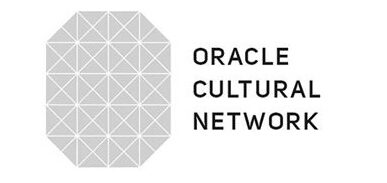The Oracle Network was founded in Athens in September 1992 by participants and pedagogic team of the European Diploma in Cultural Project Management. Oracle is more than a traditional network – it is a dynamic community of individuals who are committed to fostering intercultural co-operation through the development of transnational projects within Europe, Africa and European partner countries.
Founded as an “International non profit association” (AISBL) and registered in Brussels, ORACLE became a “National non profit association” (ASBL) in 2006 due to legal changes. The change from AISBL to ASBL as well as the registration in Belgium are for juridical reasons and have no influence on the content and interests of the network.
Whilst most members are cultural managers who have undertaken the diploma, this is not compulsory – the network also welcomes freelance workers, artists, academics and anyone who wishes to play their part in creating genuine cultural exchanges and dialogue within a modern European and global context.
At this moment we have 495 members from 50 countries:
Europe: Albania, Armenia, Austria, Belarus, Belgium, Bulgaria, Croatia, Cyprus, Czech Republic, Denmark, Estonia, Finland, France, Georgia, Germany, Greece, Hungary, Iceland, Ireland, Italy, Latvia, Lithuania, Luxembourg, Macedonia, Montenegro, Norway, Poland, Portugal, Romania, Russia, Slovak Republic, Serbia, Slovenia, Spain, Sweden, England and Wales, Scotland, Switzerland, Netherlands
Africa: Algeria, Burkina Faso, Tunisia, Morocco, Senegal, South Africa
Asia: Israel, Palestine, Singapore, Turkey
North America: Canada
ORACLE annual meetings are designed to continue the ethos of the European Diploma training and stimulate members to dream up and develop new projects, share innovative ideas and create genuine inter-cultural exchanges. Our hope is that the meetings will stimulate members to question and not to assume and to take on board different points of view that we may otherwise not have encountered – in this way we are facilitating positive social change from the inside out.
Methodology used to achieve the goals is:
– improvement of knowledge about European, national and regional cultural policies and practice
– development of professional capacities and managerial skills by collecting a new experience of working in different cultural fields
– preparing participants to play active roles in reform democratic processes and use innovative and efficient practices in local development
– supporting integration and cooperation within European Union and non-European countries
Previous meetings/ seminars / congresses organized by the Network took place in following cities:
Gdansk 2018,
Maastricht 2017,
Casablanca 2016,
Pilsen 2015,
Delphi 2014,
Aries/Marseille 2013,
Copenhagen 2012,
Madrid 2011,
Luxembourg 2010,
Seville 2009,
Ljubljana 2008,
Vienna 2007,
Ohrid 2006,
Brussels 2005,
Oulu 2002,
Belgrade 2001,
Paris 2000,
Lille 1999,
Tatihou 1997,
Krakow 1994
Our projects:
- LEAD – Linked European Arts Database,
- INOCULT – the Leonardo programme of the European Commission – a training platform for professional cultural managers in partnership with the Cultural Council of Lapland – Finland and Campo Archeologico Mertola – Portugal
- SUS.DIV. – Sustainable Development in a Diverse World, New forms of citizenship and cultural identities (2005 – 2010), SUS.DIV was a five year project (2005-2010) supported by the European Commission’s FP6 programme Citizens and Governance in the Knowledge-based Economy
